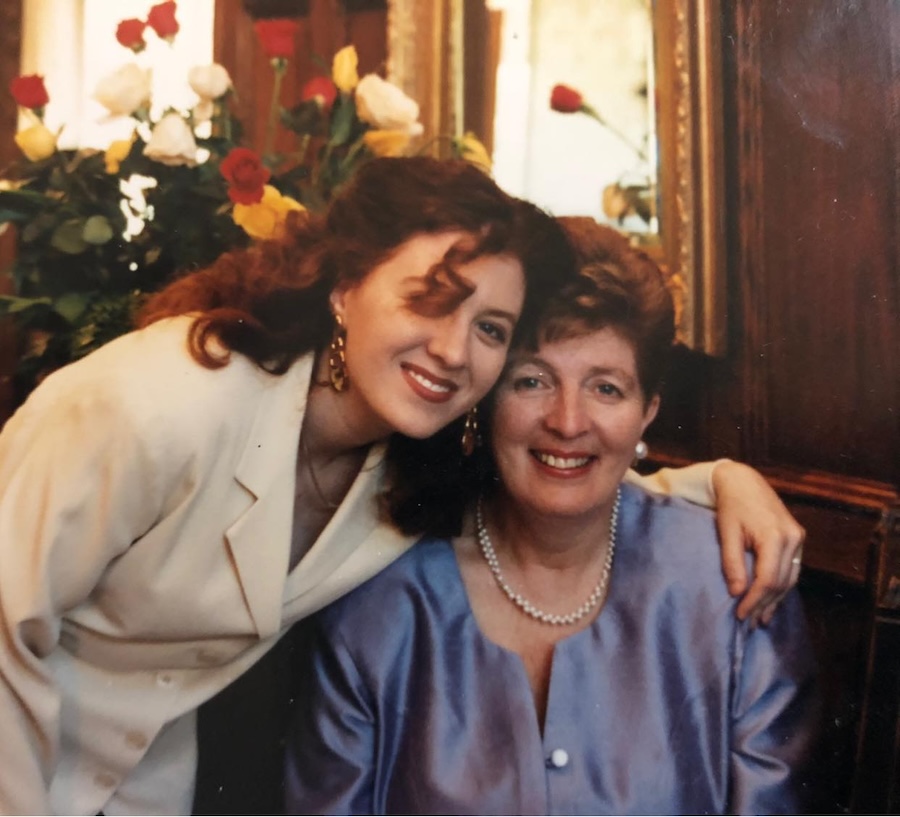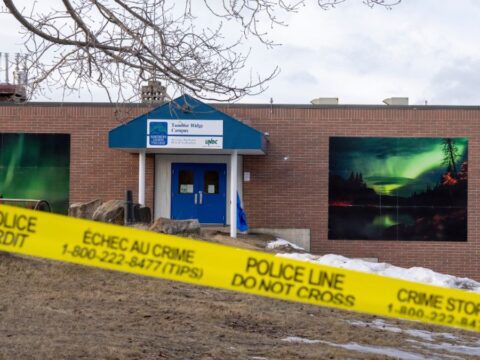Everything fades away in time, memories especially. Through the years there have been moments with my children that I try to burn into my memory. I will say to myself, “Remember right now, her tiny hand can wrap around your thumb,” and as the years go by, I can conjure up an image of my first baby’s tiny little hand wrapped around my finger, but I can’t recreate the powerful sensation of love and joy that I felt. The memory always pales in comparison to the experience. That frightens me more than anything. How quickly and completely I have lost the most important moments about being a mother. Some of the most monumental moments that I swore, as the guardian of their infancies that I would keep sacred—their first steps, their first words, and the funny way they pronounced them. The tiny little things those tiny little kids did. But no matter how hard I try to keep them all, the memories are vanishing. I think I need to be compassionate with myself; vanishing is something mothers need to accept.
My own mother disappeared from my life slowly. She had a rare, progressive, degenerative neurological disease, and every day we seemed to lose another piece of her. First to go was her ability to do a little soft-shoe in the kitchen while she cooked, and then she struggled to really cook at all. When she drove her car into my father’s office (through an exterior wall), she stopped driving, and when she had a drop attack and rolled down a hill while picking up the grandkids from school, she stopped doing that too. Soon, she couldn’t manage stairs by herself. She would scoot her way down on her bum, just like I was teaching my toddler to do at home, but then we determined that wasn’t safe either. My father, who had been by her side since they were children themselves, refused to accept that she couldn’t sleep in their second-floor bedroom and would carry her up their sweeping staircase to their room every night. But it was clear to us all that she was leaving us, painfully slowly, which she finally did on my birthday in 2023.
You may unsubscribe from any of our newsletters at any time.
Most people with her illness survive a few years at best. She made it over a decade, thanks to the incredible care she received from my eighty-nine-year-old father who met my mother in a split grade one-two class and became best friends and then eventual sweethearts and spouses. With his love and her incredible, dedicated PSWs, she thrived physically and psychologically. But by the end she was immobile. She could grasp a spoon, but had to be fed. She hovered above the ground in a stork-like sling to be transferred by machine from her wheelchair to bed. Her mind was still entirely intact, though. She had the words, she just couldn’t get them out. She remembered the dance, she just couldn’t get her brain to move her feet.
Mom used to have the same dream every night. “Boring!” Dad would say teasingly. He dreams in Technicolor, he’s off exploring the outer reaches of space. For Mom, once a dedicated teacher, she was always back in Winnipeg in front of her grade one class. She remembers the names of every child she ever taught. Her dream always ends the same, with her buttoning up their coats to send them home at the end of the day.
Mom didn’t dictate to us or lecture. She was a teacher, so she taught us lessons, but you had to pay attention to pick up on them because they often came by example. Love without fences, help without question. Trust in the inherent goodness of the people around you, and they will be good to you in return. The world can be changed through billions of small acts of support from one person to another and compassion first. And of course, perhaps most importantly, feed your community to make it stronger. Mondays were Meals on Wheels days. Wednesdays she cooked for shut-ins and for grief-stricken families at funerals, and she made free lunch for the members of Alcoholics (not so) Anonymous who had lunch in the church hall weekly. On Saturdays, she managed the community food bank. Mom never told me about her own dreams. I don’t know if she wanted to be a famous dancer or if she just liked moving her body to music. I wish I knew. But I know she liked to feed people, and she remembered all of our stories. So I try to remember the important ones for my children. Like the time, a few years ago, when a red bird landed in our backyard.
“There’s a red bird outside! A red bird!” I heard my daughter shrieking like the bird had landed on our deck from outer space instead of a nearby branch. I had been perched on my last nerve all afternoon. Our day was busy, and I had overcommitted myself as usual. I had been watching a friend’s daughter for hours already, and I had planned a special night out for us all during the never-ending pandemic. Something that was completely safe, secluded, and yet surrounded with people and excitement. Faces weren’t washed. Hair remained unbrushed. The snacks weren’t even packed yet. I wanted to shout with profound sarcasm, “A bird — outside?! No! You don’t say?!” but I love my daughter, so I stopped what I was doing, I looked and listened even though we should have been in the car by then. We were late for the fun (an old Elvira Kurt joke) at the drive-in movie, and I love drive-in movies. “The cat got it!” She had buried the lede but now delivered it breathlessly and with razor-sharp punctuation. I wanted to shout an expletive because I did not have time for this, but I was aware that I am constantly being watched by my children. Whether I liked it or not, I was going to have to instantly create a learning moment for us all on how to handle a crisis.
Stay calm. Keep a sharp eye out. Assess the situation to see if you need outside help (how does one perform mouth-to-beak on a bird?). The wounded should always be the most worked-up person in the room, not the rescuers (so why were we all flailing around?). Be the leader if there isn’t a clear one. And if you are going to lead, then lead with love. But love is hard to teach. Where to even start?
More on Broadview:
- Lost records, found roots: How a Métis genealogist helps people uncover their Indigenous ancestry
- Home away from home
- Why some experts see the Virgin Mary as a prophet too
Love is gentle. I coaxed the cat out of the way and put my hand out for the small, trembling body of what turned out to be, a fiery orangey-red budgie, to hop into. A budgie didn’t belong in my urban backyard. There are no wild budgies indigenous to the streets of Toronto. Someone loved and lost this bird. She was someone’s pet. The bird didn’t know enough to not be afraid of me, so I clutched her fragile body in the palm of my hand. She was instantly named Rosie.
Love is an action. I brought the bird inside. Cleaned and inspected its body. I gave it water and a safe place to sleep. I Googled “budgies.” I posted virtual missing budgie flyers on local lost pet groups on social media. I called my vet who recommended a bird specialist, but they wouldn’t be open until the morning.
Love is responsible. Time will not wait for love. We had a deadline. So, I loaded my brood into the car. They chatted the whole drive asking, “Can we keep Rosie if she lives?”
Love is complicated. I lied. Rather, I prattled on making false promises that Rosie will one hundred percent be okay. I did this so the kids could pack their worries away for a couple of hours and enjoy the whole experience of the movie. Lying is sometimes loving, I rationalized.
Love is work. I did not watch the movie. Instead, I settled them into the back of the truck, laying out blankets and primping and fluffing pillows until it resembled the inside of a genie’s bottle. I shuttled the children from the car to the bathroom. I refereed fights. I cleaned the spills. I got more popcorn when the first popcorn was dropped all over the gravel. When the film ended, I found out that my cell had died. So I used my homing instincts to try to find our street without a map.
Love is sacrifice. When we got home, I was tired and spent. I wanted to curl into my bed but instead I fed our pets. I made up the pull-out couch for the girls for a special treat. I bring them more snacks.
Love is exhilarating. I checked on the bird. She is alive! We all slept.
Love is unfair. In the morning the girls were up before me. Their cries rang out through the house. I wanted to put the pillow over my face, but I instead rolled out of bed and flew down the stairs. Rosie’s tiny, feathered body was rock hard. She was on her back with her little talons in the air. On further examination, I could see a microscopic claw wound under her wing, so small there was no blood. Our cat had been mere moments away from bringing us an offering of her own affection yesterday.
Love hurts. My children were despondent. This love had been a whirlwind for them. As a mother, I tried not to curl up into a ball of regret and my own insufficiency. I brought this pain into our house. I had done nothing but prolong the inevitable. I always knew this could be the outcome, likely would be the outcome. I welcomed death and put it in their path.
Love is a memory. So, I found the children an empty shoebox and I pulled out some craft paper. The kids drew pictures on the brown paper of a bright red bird around which they wrote her name in large bubble letters of burnt sienna. They began preparing the inside of her homemade coffin, making it decorative and comfortable. A little dollhouse project for them. Tiny blankets, a pillow for her head, soft tissue paper lining. The tears turn into creative excitement.
Love is a flight of fancy. Easily shown. Easily lost. Easily replaced.
Love is digging the grave. I pressed the shovel into the compacted dirt under the Winterberry tree in the backyard. Inside, the girls dried and pressed fallen flower petals between pages of their favourite books.
Want to read more from Broadview? Consider subscribing to one of our newsletters.
The night before my birthday, my mother had taken a turn for the worse. The family was called in, I met with her doctor, the paramedics stayed with us. She was sleeping. Her breathing was getting slower and more shallow. In the dim light of the kitchen, around midnight, the doctor told me it was likely to happen sometime within the night. She told me what to do afterwards. Who to call, what would happen. She was so kind.
The following morning, Mom passed away as gently and peacefully as she had lived. And I realized that was her lesson. The only lesson. Kindness. Kindness was my mom’s dream — to raise and teach children who would show kindness and compassion to our most vulnerable at all times. She may have been vanishing, but her spirit remained solid.
And I think to myself now, perhaps this is the job of all mothers — to vanish. It’s the ultimate, bittersweet and beautiful kindness that we can offer. To slowly remove yourself task-by-task from your children’s lives as they take them on themselves, and then to gently fade backwards into the darkness and let your progeny step into the spotlight.
Minutes after she passed away, a bright red bird flew onto the branch of the apple tree next to our little stream. Someone said that a red bird is a messenger from the spirit world, reminding you to love yourself exactly as you are. After we said some prayers and had a cry and said some kind words, my mother’s PSWs and I washed and dressed her body to prepare her for the funeral home. I grasped my mother’s hand and tried to burn the memory of the feeling of her thumb on my hand, her thin pale skin with the strong blue veins, and longed to feel her moving it side to side along my hand the way she always had. Her grip on my hand firm, not letting go.
Excerpted and adapted from The Call is Coming from Inside the House by Allyson McOuat. © 2024 by Allyson McOuat. All rights reserved. Published by ECW Press Ltd. www.ecwpress.com
***
Allyson McOuat is a writer in Toronto. Her work has been published by the New York Times, The Globe and Mail, and was optioned to become an episode of Modern Love Amsterdam. Her debut essay collection The Call is Coming from Inside the House was release in April.













